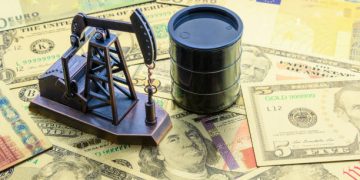The United States has announced its decision not to renew a temporary license that had significantly eased sanctions on Venezuela’s oil and gas sector. This decision hinges on the progress made by President Nicolas Maduro regarding commitments for free and fair elections this year, as stated by a spokesperson from the State Department on Monday, just three days before the license’s expiration.
Concerns have been raised by the U.S. regarding Venezuela’s electoral process and what it perceives as Maduro’s failure to fulfill his main promises for the upcoming presidential elections slated for July 28.
The spokesperson emphasized that unless there is tangible progress by Maduro and his representatives in implementing the provisions outlined in the road map, the U.S. will not extend the license beyond its expiration date on April 18, 2024. The Biden administration, however, remains skeptical about the likelihood of Maduro making sufficient concessions before the deadline.
Despite a recent secret meeting between U.S. and Venezuelan officials in Mexico, sources familiar with the talks reported minimal progress in bridging their differences.
The partial sanctions relief was granted by the U.S. in October following an election deal struck in Barbados between Maduro’s government and the opposition, which included provisions for the opposition to select its own presidential candidate. Failure to renew the current license does not necessarily preclude the possibility of the U.S. issuing a new, more restrictive license in its place.
Venezuela’s oil exports surged in March to their highest level since early 2020 as buyers rushed to complete purchases ahead of the anticipated expiration of the U.S. license.
In response to the impending expiration of the license, Venezuela’s state-run oil firm, PDVSA, has asserted its readiness for any scenario, including the return of full oil sanctions.
President Biden’s administration is currently exploring various options but is expected to refrain from a complete return to the previous “maximum pressure” policy adopted during the Trump era.
One potential measure under consideration involves allowing Venezuela to continue selling its crude on global markets while reinstating a ban on the use of U.S. dollars in such transactions, thereby necessitating the use of alternative currencies and expanding barter arrangements and swaps. This approach could potentially bolster the role of the Venezuelan banking sector in oil sales if transactions in domestic currency become the only authorized ones.
In response to the U.S. decision, Venezuelan President Maduro stated on his weekly television program that his government would proceed with or without the license, emphasizing its sovereignty. Additionally, a bipartisan group of U.S. senators has urged President Biden to consider imposing individual sanctions on those directly responsible for repressive actions, building on existing sanctions targeting numerous Venezuelan officials.
While deliberating on these measures, U.S. officials do not plan to revoke Chevron’s authorization, granted in 2022, to sell oil in the U.S. from its Venezuela joint ventures, which automatically renews each month. Authorizations for European oil companies to procure Venezuelan oil are also expected to remain in place.
The U.S. administration is mindful of potential ramifications, including the impact on global oil prices and the potential for increased Venezuelan migration to the U.S.-Mexico border, particularly as President Biden seeks reelection in November.
Separately, the U.S. Treasury Department has extended a license protecting Venezuela-owned refiner Citgo Petroleum from creditors until August 13.
Meanwhile, Venezuela’s opposition is engaged in internal deliberations regarding candidate selection for the upcoming election, with two candidates already registered and the possibility of additional substitutes being named until April 20.
Stay current with supply chain report news at The Supply Chain Report. For international trade tools, see ADAMftd.com.
#USVenezuelaRelations #OilSanctionsRenewal #ElectoralProgress #DiplomacyInFocus #GlobalEnergyPolitics















